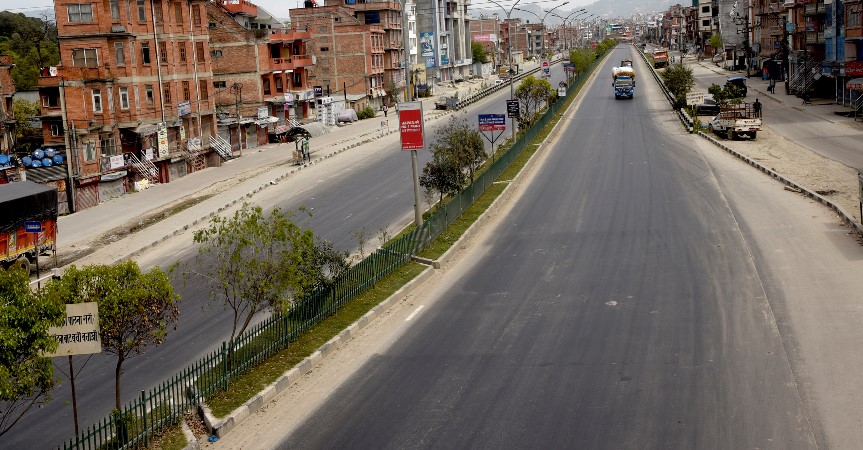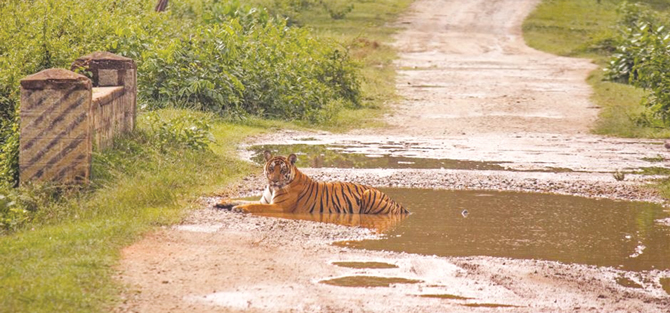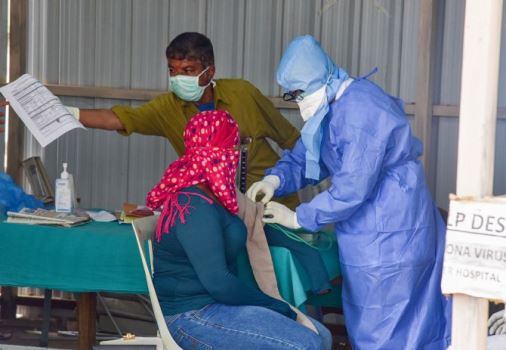Coronavirus lockdown helps improve air quality

By Indira Aryal
Bhaktapur, Mar. 30: At a time when the whole world is fighting against the global pandemic of coronavirus through lockdown to stop the possible spread, a positive change has been seen in the environmental sector, especially the air quality.
Within a few days of lockdown announced by the government in Nepal, clear view of the sky and mountains and song of birds are creating new joy to nature lovers.
This is the time to learn some lessons and start new innovations to protect the environment along with the economic development, environmentalists said.
This is not to say that the lockdown should go on for long, but if there is some control on polluting vehicles, it would be good for the environment, said Dr. Maheshwor Dhakal, chief of the climate change division at the Ministry of Forest and Environment (MoEF).
According to a news report on the BBC news, levels of air pollutants and warming gases over some cities and regions are showing significant drop as coronavirus pandemic has impacted works and travel.
“It’s visible that the air in Kathmandu is getting cleaner. It proves that if we could change lifestyle, eating and hygienic habit, it would help to protect the environment,” Dhakal said.
While looking at global phenomena, the planet heating gas, carbon dioxide, has also fallen sharply, he said.
Bhupendra Das, Environmentalist and Research Employee at the Institute for Advanced Sustainability Studies (IASS), Potsdam, Germany, said in an online conversation that the long term exposure to air pollution leads to cardiovascular and respiratory disease like asthma, lungs inflammation, lung cancer, and allergic hypersensitivity. People with these illnesses are more likely to suffer more from communicable diseases like coronavirus.
He said that the high mortality from COVID-19 was linked to previous respiratory illness, heart disease, other diseases, medication, elderly and feebler immune system, based on preliminary findings from an analysis of data of 150 patients from Wuhan, China. Detailed studies are ongoing worldwide, according to Das.
Lockdowns are the best option to prevent this killer disease, which many countries worldwide have taken into account seriously, Das said.
Public health expert Dr. Rabindra Pandey said that every disaster brings opportunity and the current change seen in the environment should be maintained like this to stop further risks.
If we maintain the present scenario, the possible risk to nature and humans will be
minimised in the future, Dr. Pandey said. The unmanaged
environment is the main cause for communicable diseases like coronavirus, which we are facing right now. There is a decline of other illnesses in hospitals now with the decline of environment pollution.
There are some positive impacts of lock-downs like safety assurance in people from virus spread and restoration of air quality. Air pollution and resultant respiratory ailments is killing 22,000 people in Nepal every year. Deteriorated air quality causes the annual death of about 5.5 million people, according to the World Health Organisation.
There is future scope to conduct a study on the impact of coronavirus outbreaks and its link to dirty air, Das said.
According to Das, the global compensation cost due to air pollution is 4.4 per cent of the total GDP. However, the national and global economic impacts due to COVID-19 are yet to be worked out, Das informed.
Dhakal, however, said that we have to look at the economic aspects as well and the environmental protection cannot be seen in isolation. “Both the issues need to be examined equally.”
Development activities and transportation should be managed well to achieve long term results on environment protection.
Recent News

Do not make expressions casting dout on election: EC
14 Apr, 2022
CM Bhatta says may New Year 2079 BS inspire positive thinking
14 Apr, 2022
Three new cases, 44 recoveries in 24 hours
14 Apr, 2022
689 climbers of 84 teams so far acquire permits for climbing various peaks this spring season
14 Apr, 2022
How the rising cost of living crisis is impacting Nepal
14 Apr, 2022
US military confirms an interstellar meteor collided with Earth
14 Apr, 2022
Valneva Covid vaccine approved for use in UK
14 Apr, 2022
Chair Prachanda highlights need of unity among Maoist, Communist forces
14 Apr, 2022
Ranbir Kapoor and Alia Bhatt: Bollywood toasts star couple on wedding
14 Apr, 2022
President Bhandari confers decorations (Photo Feature)
14 Apr, 2022







